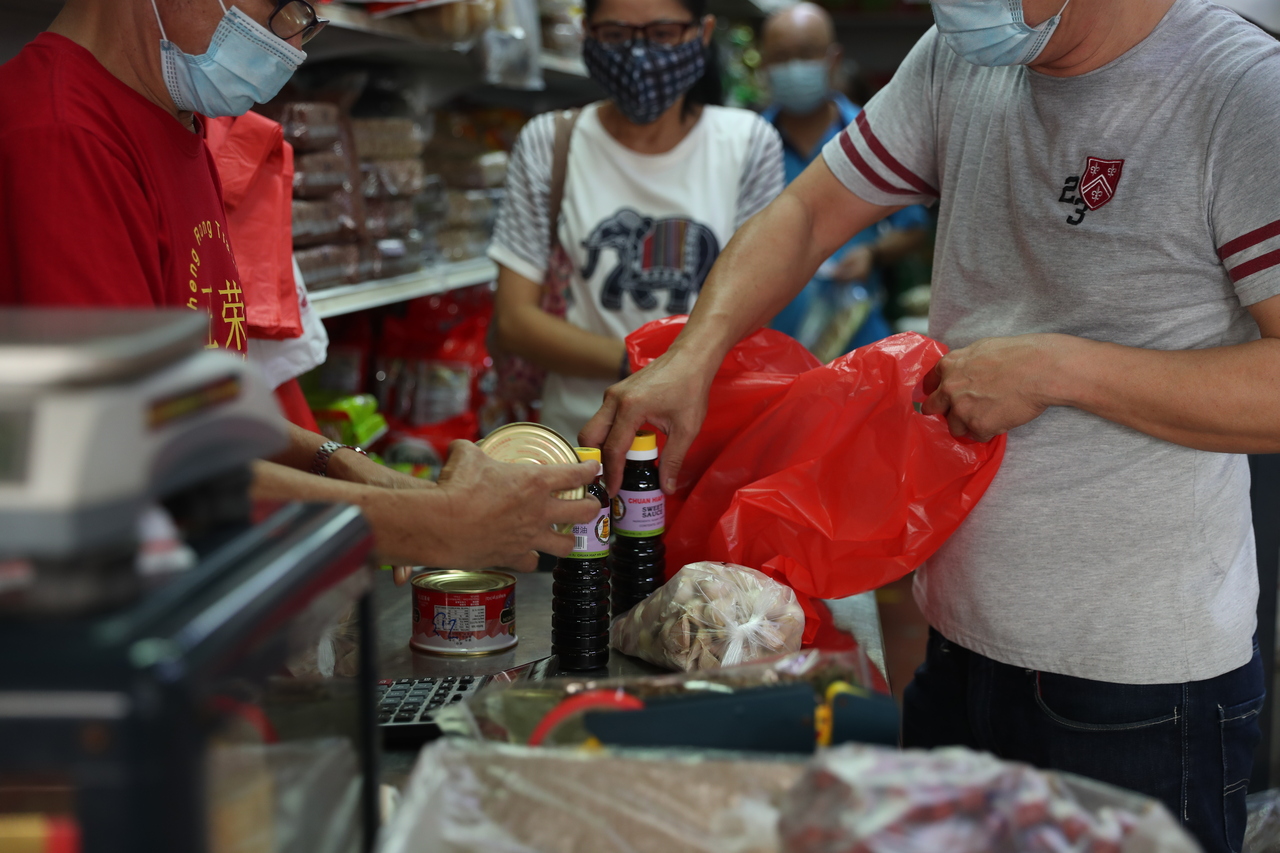COVID-19 SPECIAL
Heartland shops' business battered by coronavirus crisis
70%-80% are shut during circuit breaker, only 5% able to operate digitally: Merchants' group chief
Sign up now: Get ST's newsletters delivered to your inbox

Shops that are deemed essential services have seen sales at only 20 per cent to 30 per cent of their usual level.
ST PHOTO: TIMOTHY DAVID
Heartland areas are usually bustling places with "mom-and-pop" shops selling all manner of useful things, but the virus has battered these businesses, with many shuttered and few customers for the ones still open.
Some outlets have seen turnover plunge by as much as 80 per cent, say associations.
Mr Yeo Hiang Meng, president of the Federation of Merchants' Associations, Singapore (FMAS), said 70 per cent to 80 per cent of heartland shops are classed as non-essential, meaning they have to stay shut during the circuit breaker period.
But it is likely that only 5 per cent or so have any online presence to allow them to continue their business digitally, he added.
"With the drawing near of the Qing Ming Festival and Hari Raya, some merchants have stocked up on goods but are not able to sell them now," Mr Yeo said.
Those that are deemed essential services also have seen sales at only 20 per cent to 30 per cent of their usual level.
Shops that went online before the virus will benefit, Mr Yeo said, but they also face challenges.
"The costs of operating online, such as transaction fees and delivery fees, have diminished profit margins, hence, the merchants are not profiting from online transactions at the end of the day."
Ms Kameshwari Jayapragas, project head at the SME Centre@Little India, said that some food and beverage firms have loyal customers, but they might not have the means to allow people to order online or get food delivered. Those on food ordering apps are limited to certain areas, while delivery costs are high.
"Business owners are worried about their rental payment, staff salaries and cash flow to tide them through the circuit breaker, as low or no sales are hampering their business continuity," she said.
Mr Jon Lee of Chong Pang City Merchant and Hawker's Association said the organisation has received more inquiries among heartland firms about the e-marketplace, a platform for shops in the area to sell their wares online.
But "some of these retailers lack the technical skills, and though it might seem simple to some of us, not all merchants will find it easy to do product shots and editing before putting them up on the e-marketplace for sale. A training process is required before they can get familiarised".
He noted that retailers were encouraged to let the association set up and manage social media pages for them so customers can access information on the businesses.
Enterprise Singapore said yesterday that it is expanding its E-Commerce Booster Package to help small and medium-sized enterprise retailers develop digital marketing capabilities.
This includes a one-time 90 per cent support for digital marketing advisory services. Previously, the support was only for retailers to get on board e-commerce platforms.
There will also be more help for firms to hire people to build in-house capabilities for sustained digital marketing efforts.
The FMAS is also partnering with the Heartland Enterprise Centre Singapore to tell merchants about the financial support measures in the Budget. They are also working with DBS Bank on low-interest business loans for members, while exploring the possibility of Web seminars so merchants can upskill.
Ultimately, this period highlights the need for even such traditional businesses to transform digitally.
Ms Jayapragas said: "(Those online) are seeing their efforts pay off as they can sell their products, update new promotions and market their e-shop to their customers through social media marketing, e-mails and WhatsApp.
"Some shops have shared that their online sales have picked up by an average of 50 per cent and their tie-ups with logistics companies have made it easy for deliveries."
Mr Mohamed Shah, the director of Rasool Shop in Little India, said sales have dropped by 50 per cent during the crisis.
-
80%
Turnover plunge experienced by some businesses in the heartland.
But because he went online in March on e-marketplace Dei.com.sg, digital sales are sustaining the business, which sells groceries and household items. About 70 per cent of his sales are now generated online.
He said: "The idea of business transformation is needed as it has helped us to still serve our customers. Users have been very receptive as they have been doing online shopping. It is a positive outcome."


